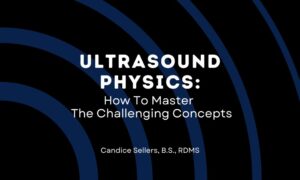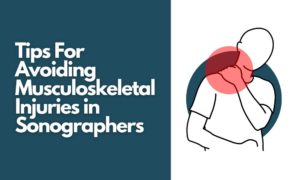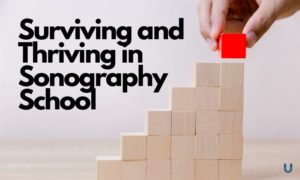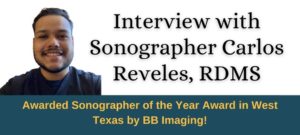Are you wanting to get into healthcare, but don’t want to spend a lot of time and money before starting? You might be surprised to find out that you do not necessarily need a four-year degree (or higher) to kick start a healthcare career. Whether you are finishing up high school, or wanting to change careers, numerous allied health professions only require an associate degree or even less than a year of post secondary education. Some positions you can even start without anything more than your high school diploma or GED!
Healthcare is a Rapidly Growing Industry
During times of econonic downturn, employment in the healthcare field remains fairly strong. While not necessarily “recession proof”, most areas within healthcare are able to withstand the ups and downs of the economy.
In May, 2021, the U.S. Bureau of Labor Statistics (BLS) released its list of the occupations that are predicted to have the strongest job growth from 2019 to 2029. Of the 30 occupations listed, 36% are in healthcare. The fastest growing healthcare occupation listed was Home Health Aides, where jobs are expected to increase by 33%.
Many of the occupations listed in the BLS’ chart are available with a two-year associate’s degree, a one-year certificate, or just a high school diploma.
How to Get Started
High School Students
For most healthcare positions, a solid foundation in math, science and English during your high school years is the way to go. To stand out from other applicants, whether you are applying for a job right away or applying for a college/university program, it is a good idea to challenge yourself and take advanced level courses. Taking a challenging ‘college prep’ schedule that includes four years of math, science, and English, including some AP courses, will help you qualify for most health career education programs.
Also look into specific courses and electives that your high school might offer that are linked to your career aspirations. For example, anatomy & physiology and physics are great educational assets if you are thinking of becoming an ultrasound tech or another medical imaging professional.
Start exploring your career options in your spare time. Volunteer in hospitals or other health care settings to find out which roles you enjoy. (Numerous hospitals offer volunteer programs for teens). Research college programs and find out which pre-requisites are required. Some educational institutes and organizations also offer a pre-health enrichment programs and camps for high school students or grads.
Adult Learners
If you are no longer in high school, not having these courses (i.e. specific science courses) does not disqualify you from getting your foot in the ‘healthcare career door.’ Depending on which position/post secondary program you first apply for, you could complete them as a distance learner or you may not need them at all.
If you’re considering a career change, start researching some of the careers listed below to see what you might be interested in, based on your own experiences and talents. Perhaps you’re meant to directly work with patients, play an administrative role, work behind the scenes or perform laboratory or diagnostic duties. As you start researching educational programs, you’ll notice that many do not take very long to complete and several offer the option of a part-time or online program, so you can continue to work as you complete your studies.
Careers With a Certificate or Associate Degree
Numerous healthcare careers do not require a Bachelor’s degree. Of course requirements vary by jurisdiction and employer. But generally speaking, the following positions are examples of healthcare professions that only require an Associate degree, a certificate or less education (i.e. 2 years, 1 year or less of postsecondary training):
- Diagnostic Medical Sonographer
- Cardiovascular Technician/Technologist
- Radiologic Technologist
- Pharmacy Technician
- Licensed Practical Nurse (LPN)
- Medical Biller and Coder
- Physical Therapist Assistant
- Medical Assistant
- Phlebotomist
- Surgical Technologist
- Emergency Medical Technician
- Massage Therapist
- Dental Assistant
- Dental Hygienist
- Medical Transcriptionist
Note: Some of these positions require licensure.
Careers Available with a High School Diploma or GED
Again it depends on jurisdiction and employer, but generally speaking, examples of careers you can start with just high school or your GED include:
- Personal Care Aide
- Home Health Aide
- Physical Therapist Aide
- Medical Secretary
- Pharmacy Aide
- Some entry-level medical assistant positions are open to high school grads.
Choosing Your Program
Programs for entry level jobs in healthcare can be found at technical schools, community colleges, and trade schools. Many are offered online or as part of a hybrid program. It’s important to consider the accreditation of the program that you’re applying to, as that it a testament to the quality of the education that you’ll be receiving. There are many accrediting bodies depending on the field. Here are just a few:
Commission on Accreditation of Allied Health Education Programs (CAAHEP)
The Joint Commission
Accrediting Bureau of Health Education Schools (ABHS)
Council for Higher Education Accreditation
Is there room to advance?
Yes! That is the exciting aspect about healthcare. There are numerous career paths allowing you to advance with further education and/or experience. For example, if you enjoy working as a home health aide, you may wish to pursue studies to become an LPN. Or if you enjoy your experiences as a pharmacy technician it may plant the seed to work towards earning your Doctor of Pharmacy degree to become a pharmacist. These are just some of many examples.
There are many natural transitions; but working in an entry-level healthcare position can also help you learn about other types of careers, which will help you make decisions about future employment and educational degree plans.
Can I keep working while upgrading my skills and expertise?
Often times you can further your education while maintaining your “day job”. More and more colleges and universities are catering to part time and distant learners to accommodate busy lifestyles. Some online programs do exist (i.e. for medical transcription, medical billing and coding, and more specialties).
Learn how to improve your resume while in school
For healthcare programs that involve some form of patient care, technical expertise and/or clinical duties, they may not offer an online option as they prefer you to gain hands-on-experience in the class and lab. But there are often opportunities to enroll in part time programs (i.e. evening and weekend tracks).







